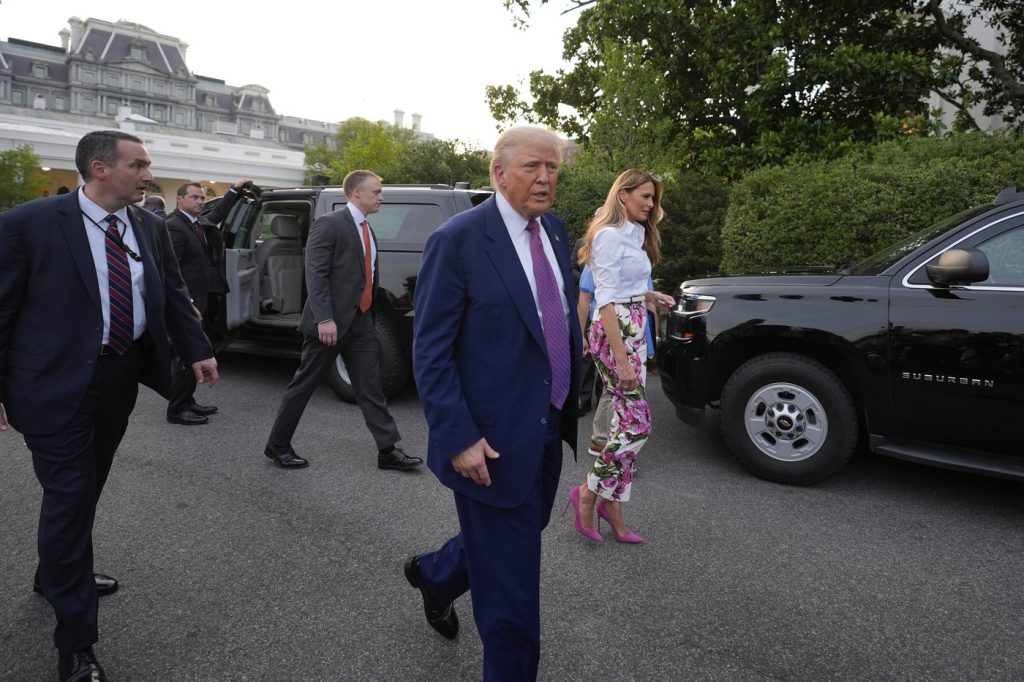Just hours before Israel launched strikes on Iran in an operation called "Rising Lion," President Donald Trump maintained a fragile hope for a diplomatic resolution to the long-standing tensions surrounding Tehran's nuclear program. Despite these aspirations, the Israeli military's actions raised questions about Trump's ability to fulfill his campaign promise of disengaging the U.S. from foreign conflicts.
The immediate U.S. response to the Israeli assault came from Secretary of State Marco Rubio, who also serves as Trump's national security adviser. He emphasized that the U.S. was "not involved" in the strikes and highlighted the administration's primary focus on the protection of American forces in the region. Rubio stated, "Israel advised us that they believe this action was necessary for its self-defense," while also warning Iran against targeting U.S. interests.
As Israel prepared for the strikes, Iran had made clear that it would hold the U.S. responsible should an Israeli attack occur. Iranian Foreign Minister Abbas Araghchi warned while engaging in talks with Trump's special envoy, Steve Witkoff, over Iran's advancing nuclear program. Just hours prior to the strikes, Trump argued for continued diplomatic efforts, but the reality shifted dramatically as Israel initiated its military operation.
Trump's administration moved quickly, with plans to meet in the Situation Room to address the unfolding situation. Senator Tim Kaine, a Democrat from Virginia, commended the Trump administration's emphasis on diplomacy but voiced concern about the implications of the strikes for U.S. personnel in the region. He questioned, "I cannot understand why Israel would launch a preemptive strike at this juncture, knowing high level diplomatic discussions... are scheduled for this weekend."
Iranian officials responded to the Israeli strikes, which targeted significant sites including Iran's principal enrichment facility in Natanz and its ballistic missile program, indicating their intent for retaliation. The Israeli government's actions, occurring just before high-level negotiations between the U.S. and Iran, raised eyebrows among lawmakers and foreign policy experts alike.
Before the Israeli strikes, Trump reiterated his calls for negotiation, warning that a "massive conflict" could ensue if diplomatic efforts failed. The administration had already taken precautionary measures, directing a voluntary evacuation of nonessential personnel from certain U.S. diplomatic locations in the Middle East, indicating a rising concern over potential hostilities in the region.
The tension surrounding the incident saw some of Trump's staunchest supporters expressing unease over the prospect of another U.S. military engagement in the Middle East. As Trump struggled to deliver a clear endgame in ongoing conflicts, including those in Gaza and Ukraine, criticism mounted, particularly from within his own party regarding the implications of renewed military action against Iran.
Moreover, the administration's push for negotiating a resolution to Iran's nuclear ambitions followed the U.S.'s withdrawal from the 2015 nuclear agreement, which had established limits on Tehran's uranium enrichment in exchange for sanctions relief. Trump's unilateral exit from the deal led to a more complicated diplomatic landscape that appeared further clouded after the Israeli strikes.
Experts, including Rosemary Kelanic from Defense Priorities, warned against drawing the U.S. into a conflict that would risk another prolonged military campaign in Iran, mirroring mistakes of the past, such as the Iraq War. The public's significant opposition to further military involvement in the region may also pose challenges for the Trump administration moving forward.
As tensions escalate and military action unfolds, the administration faces the critical task of safeguarding U.S. interests and personnel in the region while navigating the complex political ramifications of Israeli-Iranian relations.











